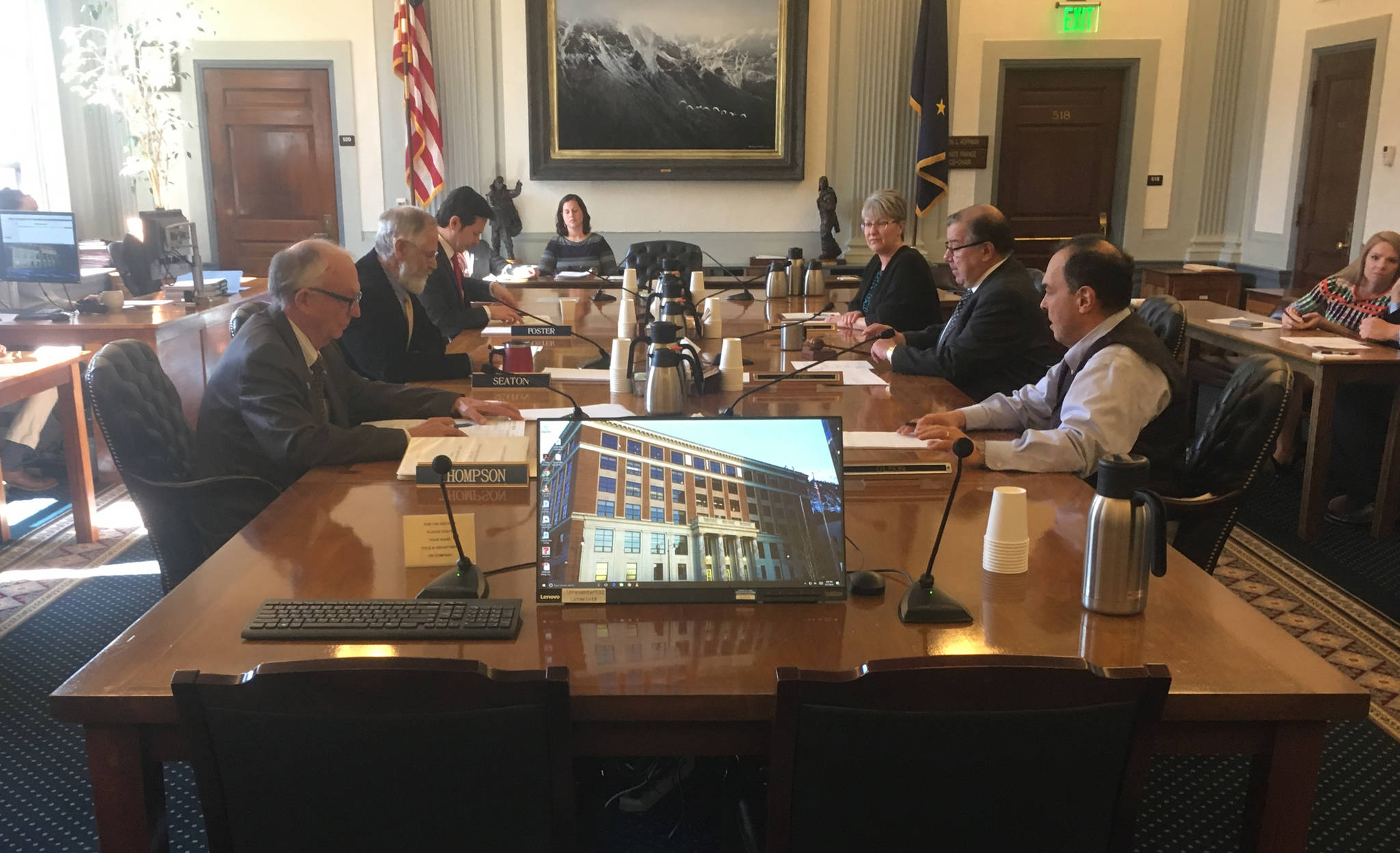The Alaska Legislature took its first tentative steps toward a budget compromise as conferees from the House and Senate met Tuesday afternoon and agreed upon the budgets of the Alaska Department of Commerce and the Alaska Legislature.
Conferees also agreed upon capital construction projects in the state’s comprehensive mental health budget, and portions of the state’s debt-payment budget.
Tuesday’s meeting, which lasted only minutes, is the first step in an annual process by which lawmakers come up with a compromise that includes components of a spending plan passed by the Alaska House and a different proposal approved by the Alaska Senate.
The compromise budget is for the fiscal year that starts July 1 and ends June 30, 2019.
In both cases, this year’s budget will be paid-for with $700 million from the Constitutional Budget Reserve and $2.7 billion from the Alaska Permanent Fund ($1 billion will be spent on the Permanent Fund Dividend, the rest on general expenses).
For House and Senate lawmakers, the differences this year lie in what that money will buy.
For the Department of Commerce, Community and Economic Development, the agreed-upon budget is $166.8 million, an amount originally suggested by Gov. Bill Walker and left unchanged by either House or Senate. The House and Senate differed only on “intent language,” nonbinding budgetary wording that expresses the Legislature’s beliefs about the department’s goals or objectives.
Lawmakers on Tuesday also agreed upon a $65.7 million budget for the Legislature itself. House and Senate disagreed on how to pay for an audit of federal health and social services programs in Alaska; conferees settled on the Senate’s plan to make the Department of Health and Social Services pay for it. Most of that payment is expected to come from federal money.
In the state’s $275 million budget for debt payments, negotiators agreed to spend $12.3 million remaining from an Alakanuk school construction bond issue to pay for principal payments from a 2013 statewide bond issue. The action, in effect, uses borrowed money to pay payments on other borrowed money.
In the state’s comprehensive mental health budget, which is funded with money from the Mental Health Trust rather than the state’s ordinary budget, lawmakers approved $12.5 million in projects.
All of the agreed-upon items are relatively small parts of the total budget, which is expected to be between $10.5 billion and $12 billion.
Conference committee meetings are usually short affairs where decisions made behind closed doors are finalized. That was the case Tuesday; the meeting lasted only five minutes, and the principal negotiators promptly adjourned the meeting for continued negotiations in the office of Sen. Lyman Hoffman, D-Bethel.
Hoffman is the lead negotiator for the Senate Majority.
“I think negotiations are proceeding forward,” he said after leaving his office with Sen. Anna MacKinnon, R-Eagle River; Rep. Neal Foster, D-Nome; and Rep. Paul Seaton, R-Homer.
While lawmakers have already passed the 90-day mark of the session and are three-quarters of the way to the 121-day constitutional limit, Hoffman said the situation is a “night and day” difference from last year, when lawmakers needed until June to agree upon an operating budget.
Foster offered similar comments, saying that the chief stumbling block is whether or not there will be an agreement upon a long-term, rules-based approach for taking money from the Alaska Permanent Fund.
While neither Seaton nor Foster were willing to explain details of the negotiation, they said the principal issue for the coalition House Majority is whether lawmakers will be asked to approve a budget that solves the deficit using only the Permanent Fund, or if there will be some other addition to offset the drawbacks of spending from the fund.
“It goes back to the original premise: Are we going to have a complete fiscal plan … or are we going to partially (address it)?” Seaton said.
No date has been set for the next conference committee meeting.
• Contact reporter James Brooks at jbrooks@juneauempire.com or 523-2258.

